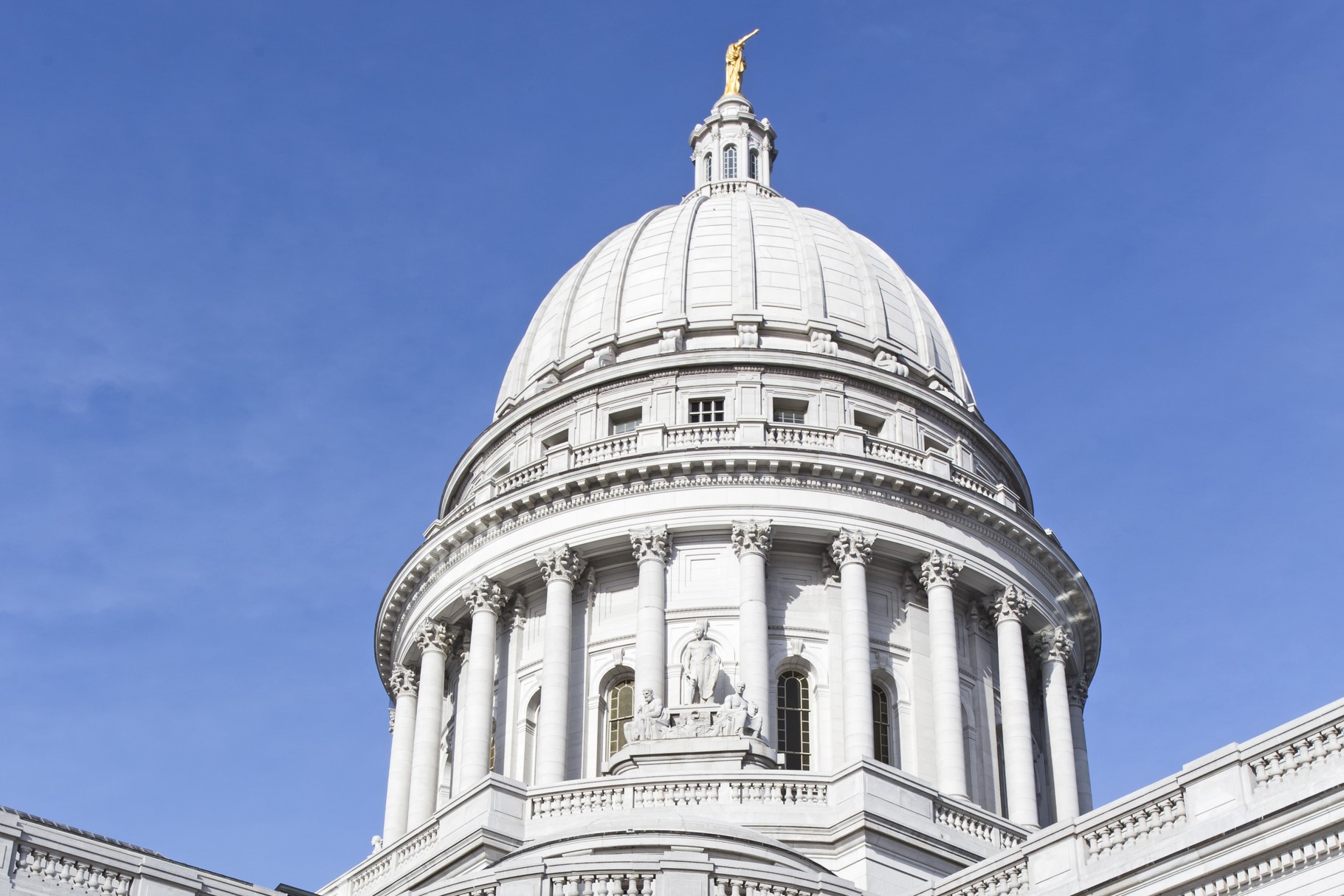 Assembly Republicans have introduced the first bill of the 2021-22 legislative session, Assembly Bill 1, their COVID relief package. The bill is on the fast track to passage as it has a public hearing and vote in the Assembly health committee today (Jan. 5) and is scheduled to be voted on by the full Assembly on Thursday, Jan. 7. According to the Milwaukee Journal Sentinel, Assembly Speaker Robin Vos (R-Rochester) has indicated his GOP colleagues in the state Senate are on board with the legislation but it includes items Gov. Evers does not support and is likely headed for a veto.
Assembly Republicans have introduced the first bill of the 2021-22 legislative session, Assembly Bill 1, their COVID relief package. The bill is on the fast track to passage as it has a public hearing and vote in the Assembly health committee today (Jan. 5) and is scheduled to be voted on by the full Assembly on Thursday, Jan. 7. According to the Milwaukee Journal Sentinel, Assembly Speaker Robin Vos (R-Rochester) has indicated his GOP colleagues in the state Senate are on board with the legislation but it includes items Gov. Evers does not support and is likely headed for a veto.
The bill includes provisions related to public K-12 education that the WASB supports and well as provisions we oppose based on our member-approved resolutions.
The WASB supports the civil liability provisions of Assembly Bill 1. We appreciate that these provisions do not impact the existing limited governmental immunity that public schools already have against tort claims. That existing limited immunity provides some needed relief but still leaves school districts vulnerable to claims, including claims not based on merit but brought for their settlement value. Assembly Bill 1 creates an additional type of immunity that a school district could raise as an affirmative defense if, for example, a student contracts COVID-19 and then files a lawsuit against the school.
There are, however, a number of other provisions in Assembly Bill 1 that the WASB cannot support, including:
The bill would provide that starting next Monday (January 11, 2021), a school board may not provide virtual instruction to pupils instead of in-person instruction unless such virtual instruction is approved by a two-thirds vote of the members of the school board. The bill further provides that each school board approval of virtual instruction is valid for 14 days and a school board may reauthorize the virtual instruction only by subsequent two-thirds votes of the school board members.
Not only does this provision interfere with local control, substituting the prerogatives of lawmakers in Madison for the judgment of school board members, but 14 days is an arbitrary time period that may be divorced from sound medical guidance or the school district’s ability to adequately staff its school buildings for in-person instruction. The arbitrary requirement for a two-thirds vote of the board could allow a minority of board members to force a district into an instructional model that may not be in the best interest of the district and its staff. While the WASB is appreciative that the present bill does not include the provisions unveiled previously that would financially penalize districts for decisions made in the interest of public safety, we remain concerned about attempts by the legislature to micromanage local decision-making.
We are also concerned about changes to the full-time open enrollment application process that could allow for wholesale migration of students from one district to another in the middle of a school year. Given the amount and persistence of legislative comments about how challenging the next state budget will be for public school funding and the reality that open enrollment students bring with them a substantial amount of funding, we are concerned that this provision may cause certain districts to focus an inordinate amount of attention on the financial implications of accepting full-time open enrollment students and pit school districts against one another.
Finally, the WASB is concerned about provisions in Assembly Bill 1 that would impact interscholastic athletics and extracurricular activities and also usurp school board authority. Similar provisions were included in legislation we opposed in the last legislative session.
Athletics and other extra-curricular activities offered in public schools are, as the name suggests, intended to supplement the school curriculum. In this regard, sports, music, forensics, and other activities are viewed as an extension of the classroom and of the school day and are specific to each respective school or district.
Public schools provide athletics and other extracurricular activities because they have educational value and create incentives for students to enroll in and remain in public schools and perform well enough to remain eligible to participate in those activities. These opportunities reduce truancy, reduce discipline referrals, boost grades, increase graduation rates, and keep students engaged in school offerings and interested in their education. In this regard, school-based athletic programs are not community or recreational youth sports programs and are not designed to provide the general public with programming like a YMCA or community-based recreation program.
We believe it should be up to the discretion of school boards to determine who is eligible to participate in athletics and other extra-curricular activities offered by the school district. We also oppose legislative attempts to regulate private organizations such as the WIAA by restricting school districts’ ability to participate in the WIAA or its activities unless they follow such legislative mandates.

